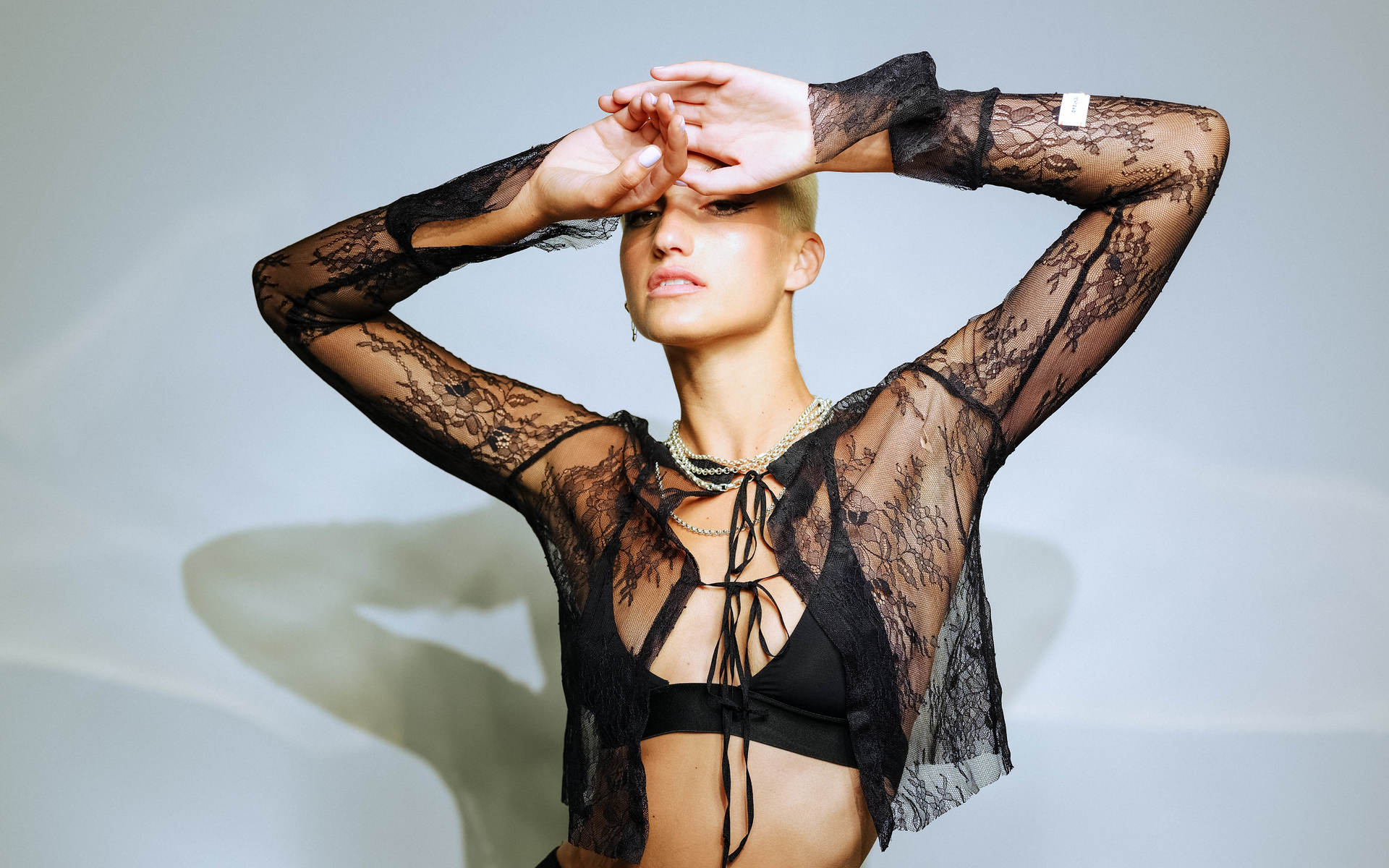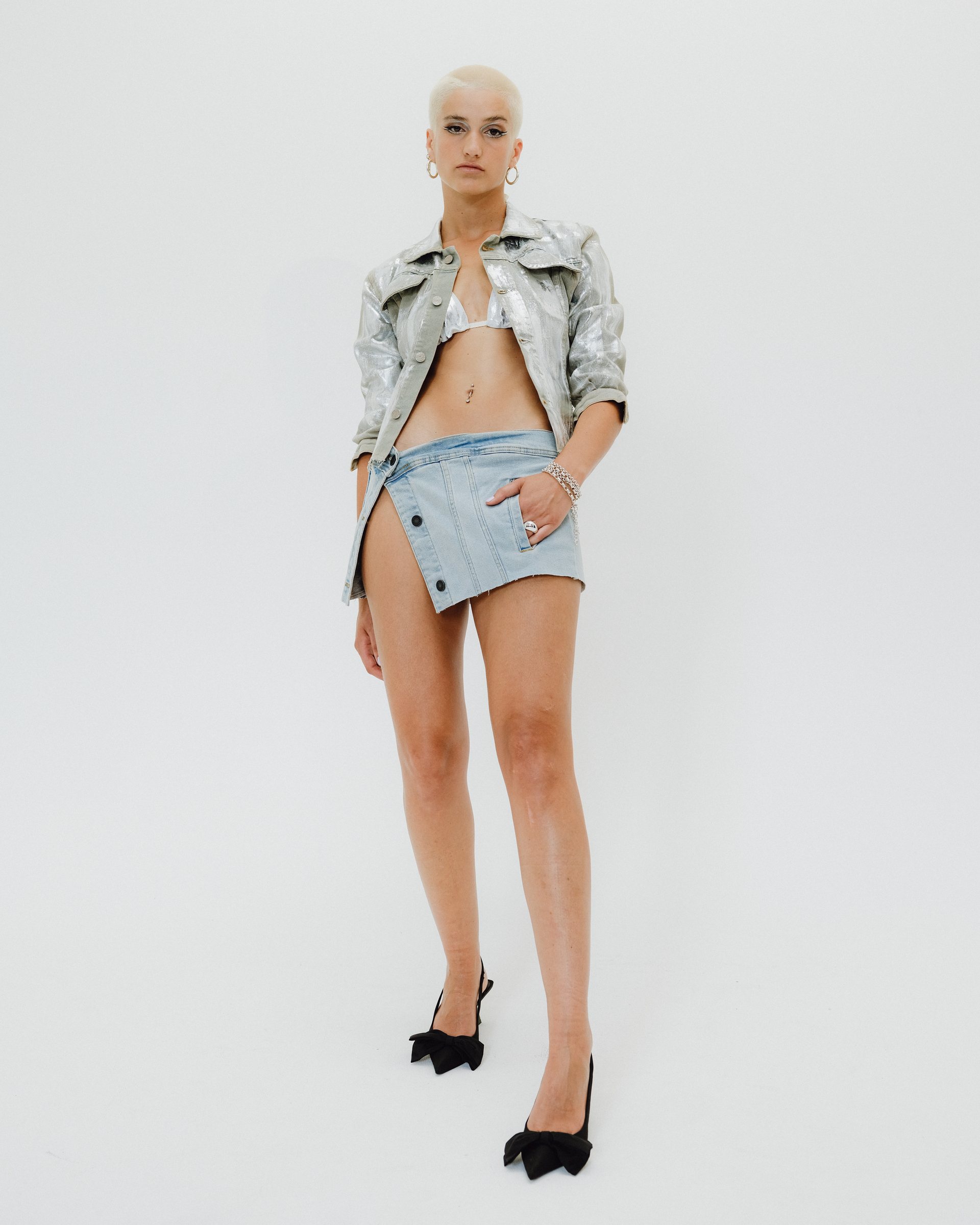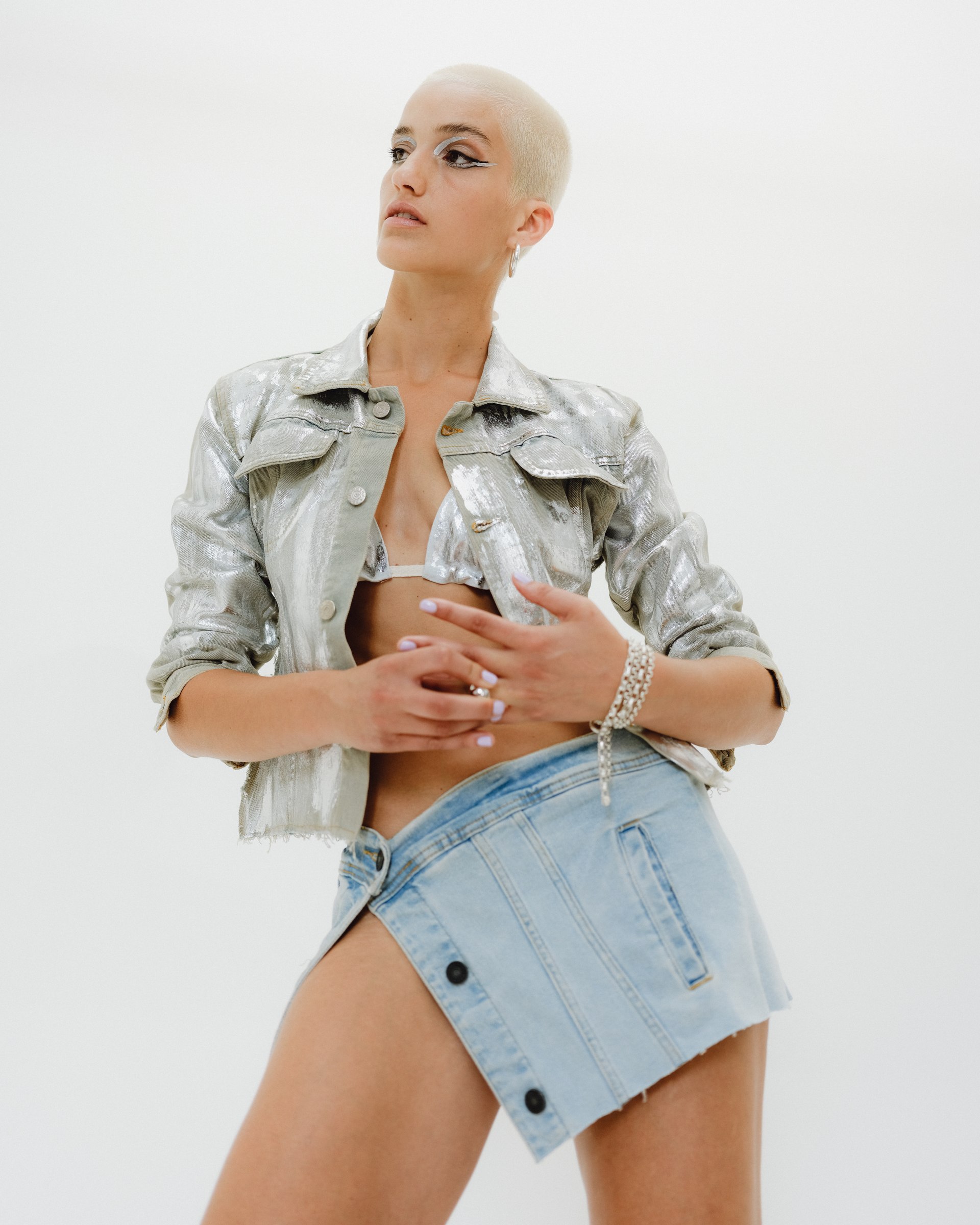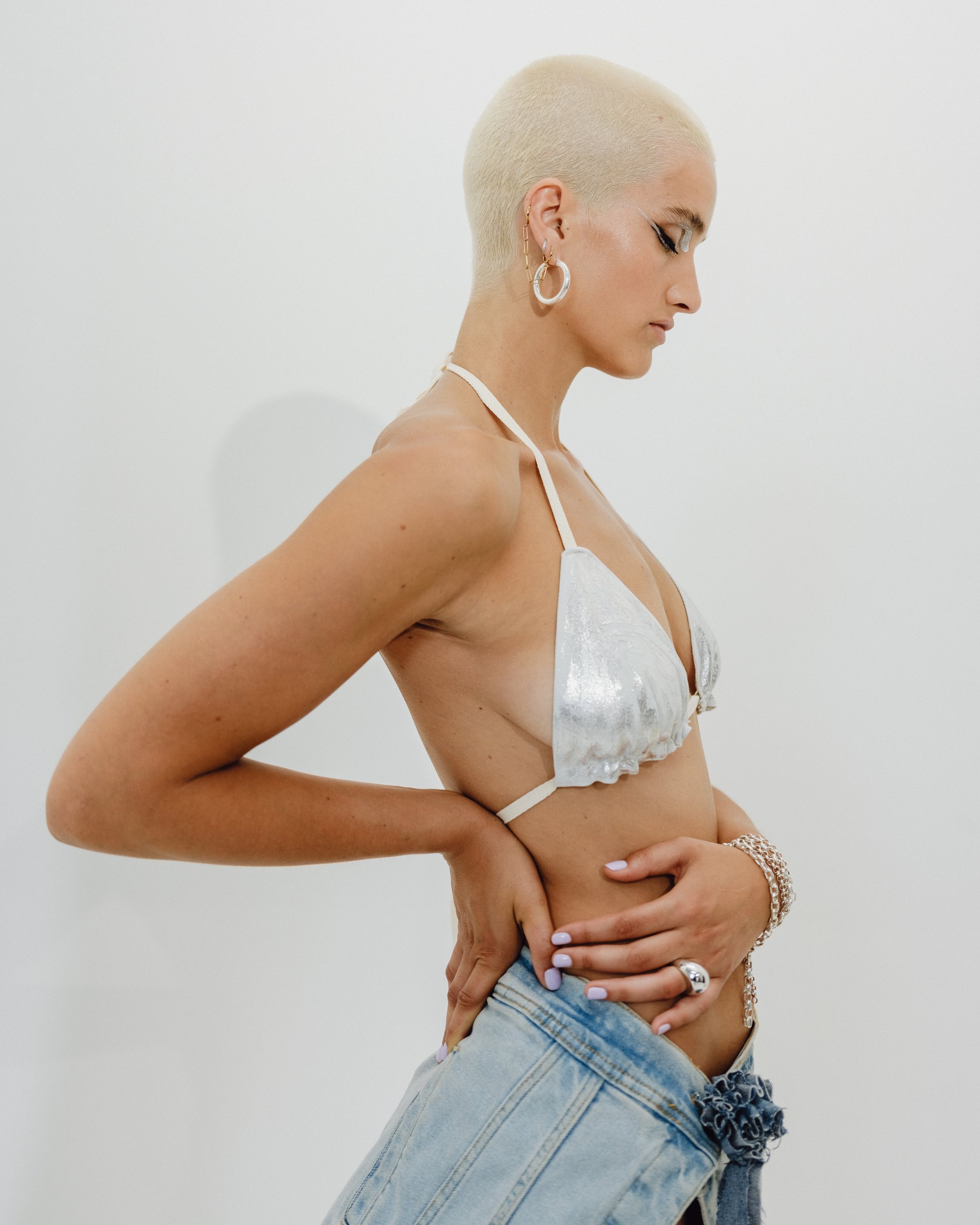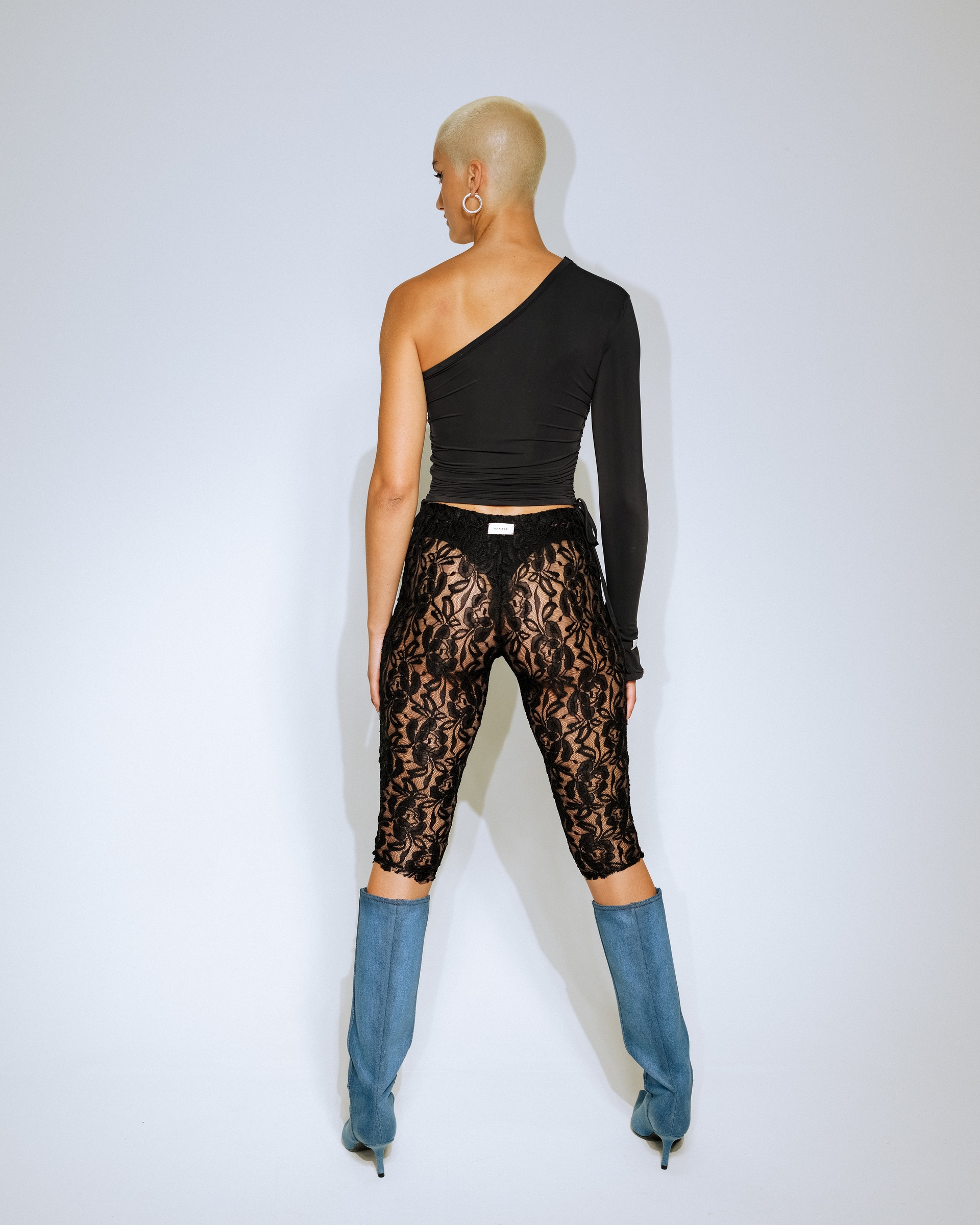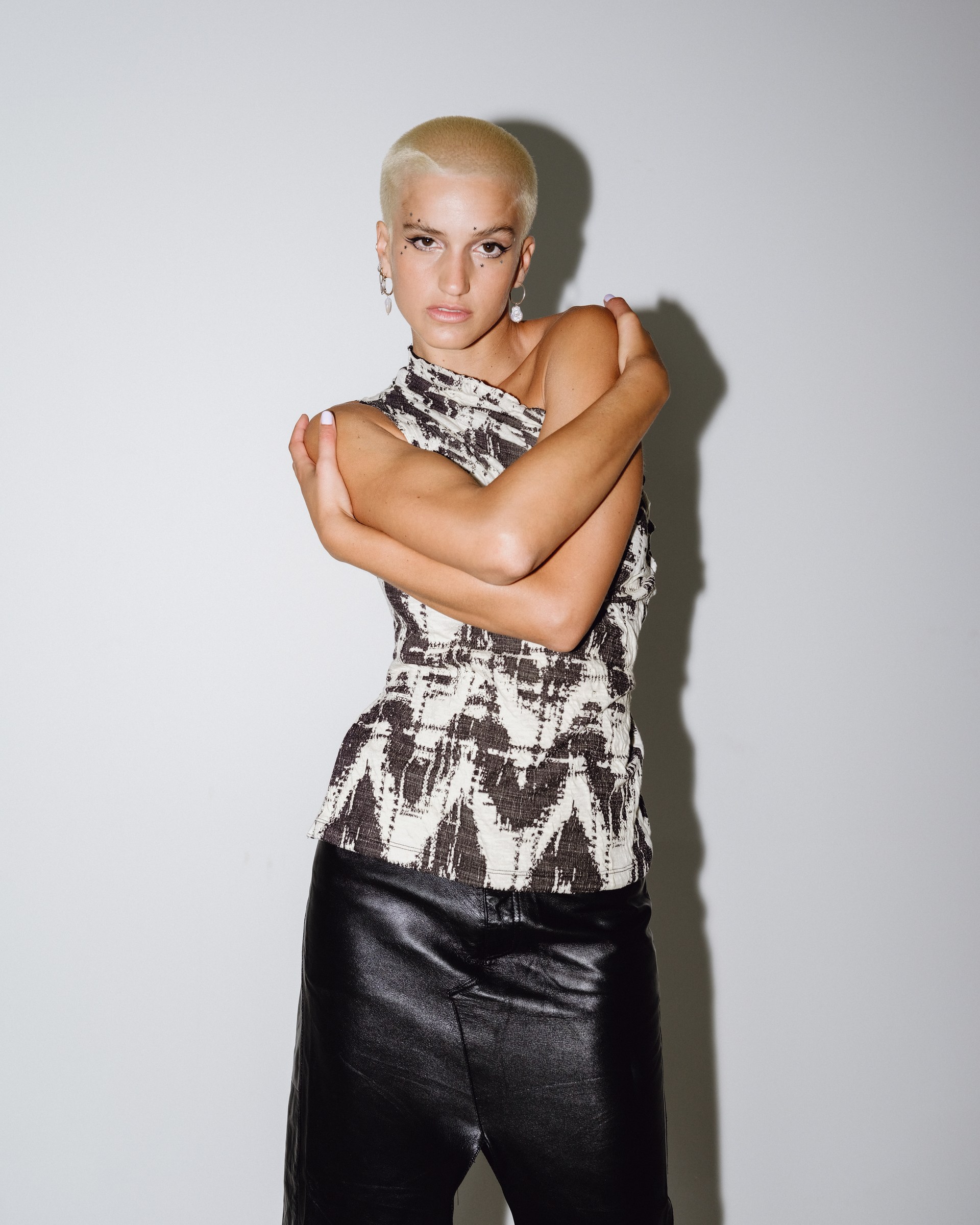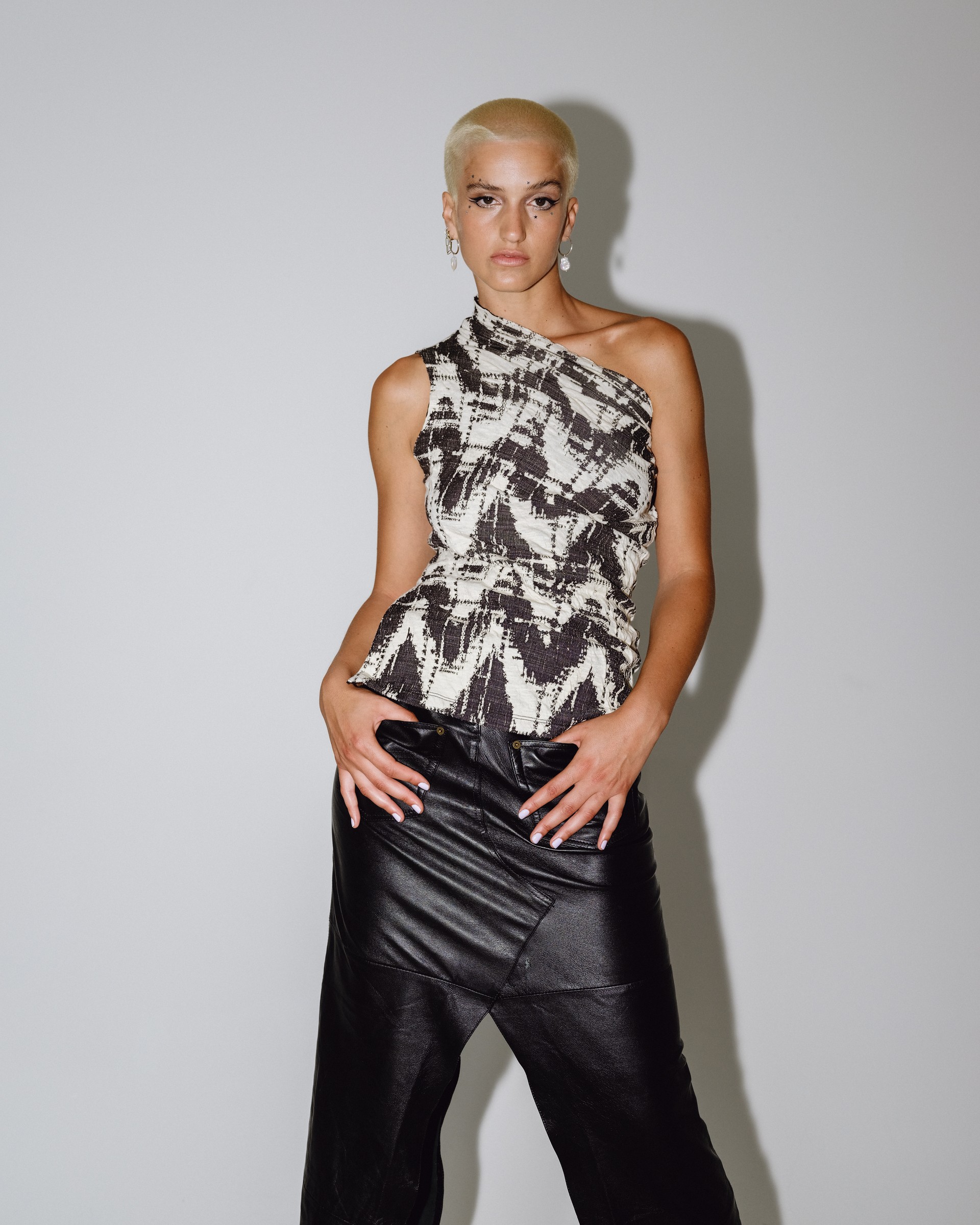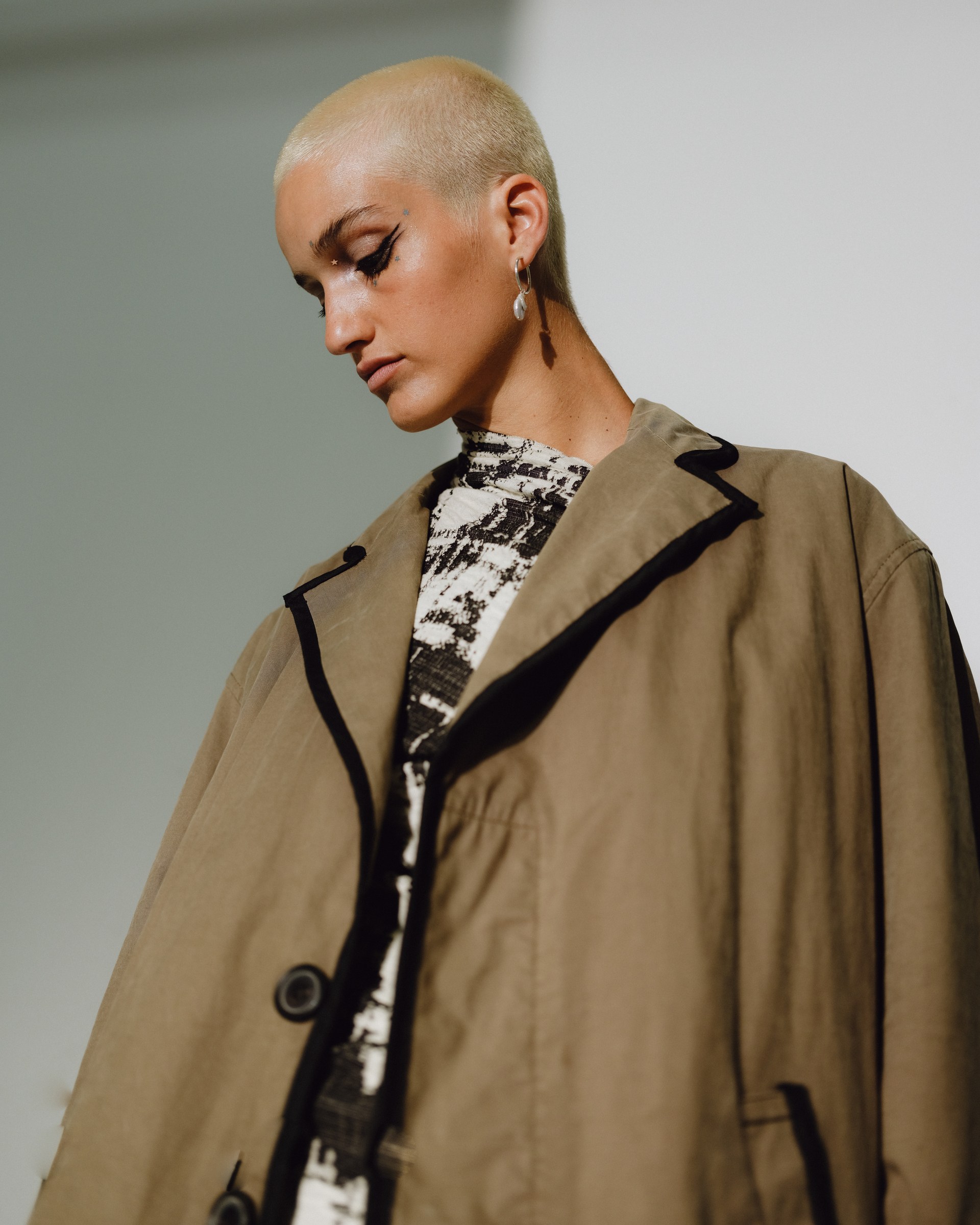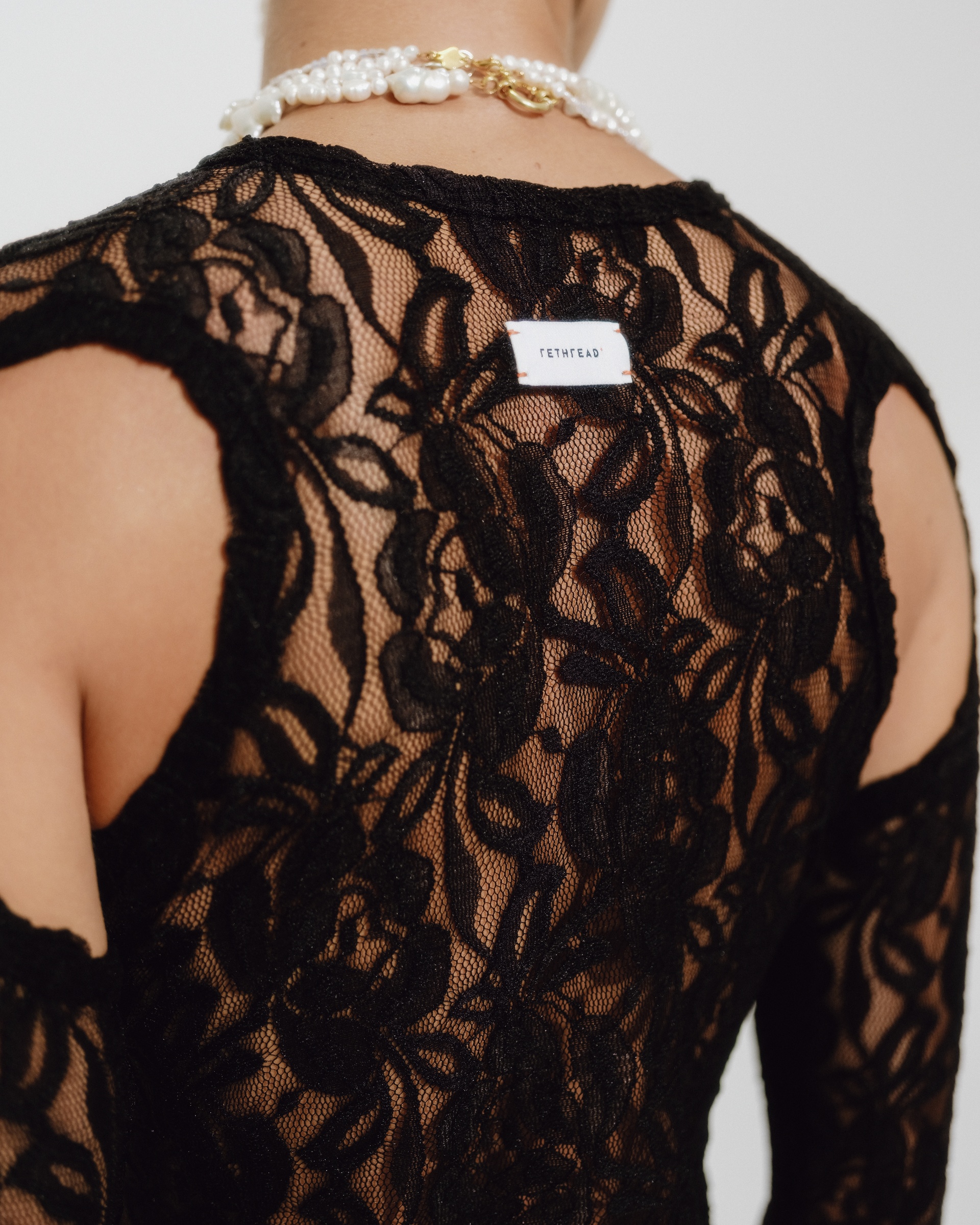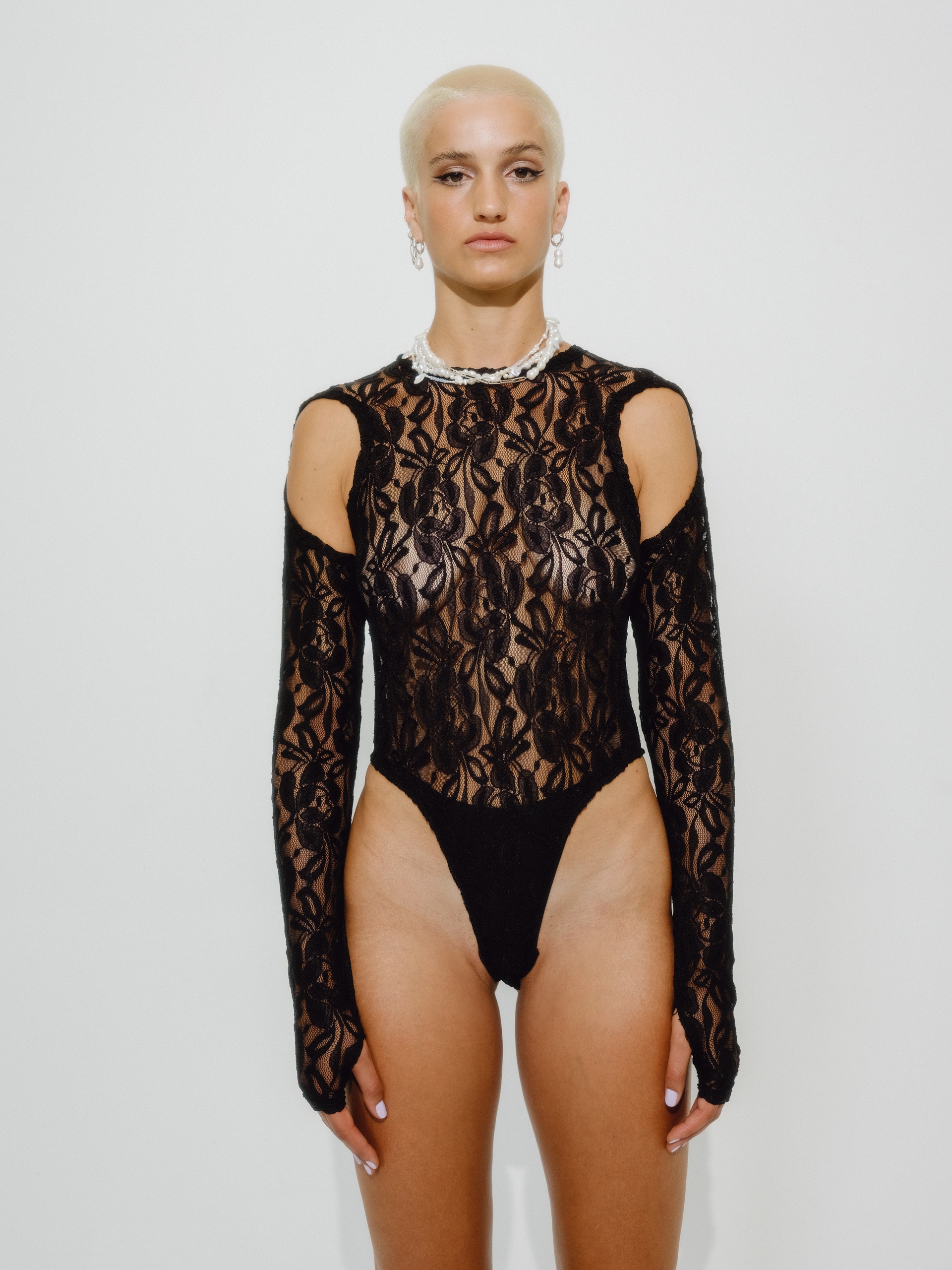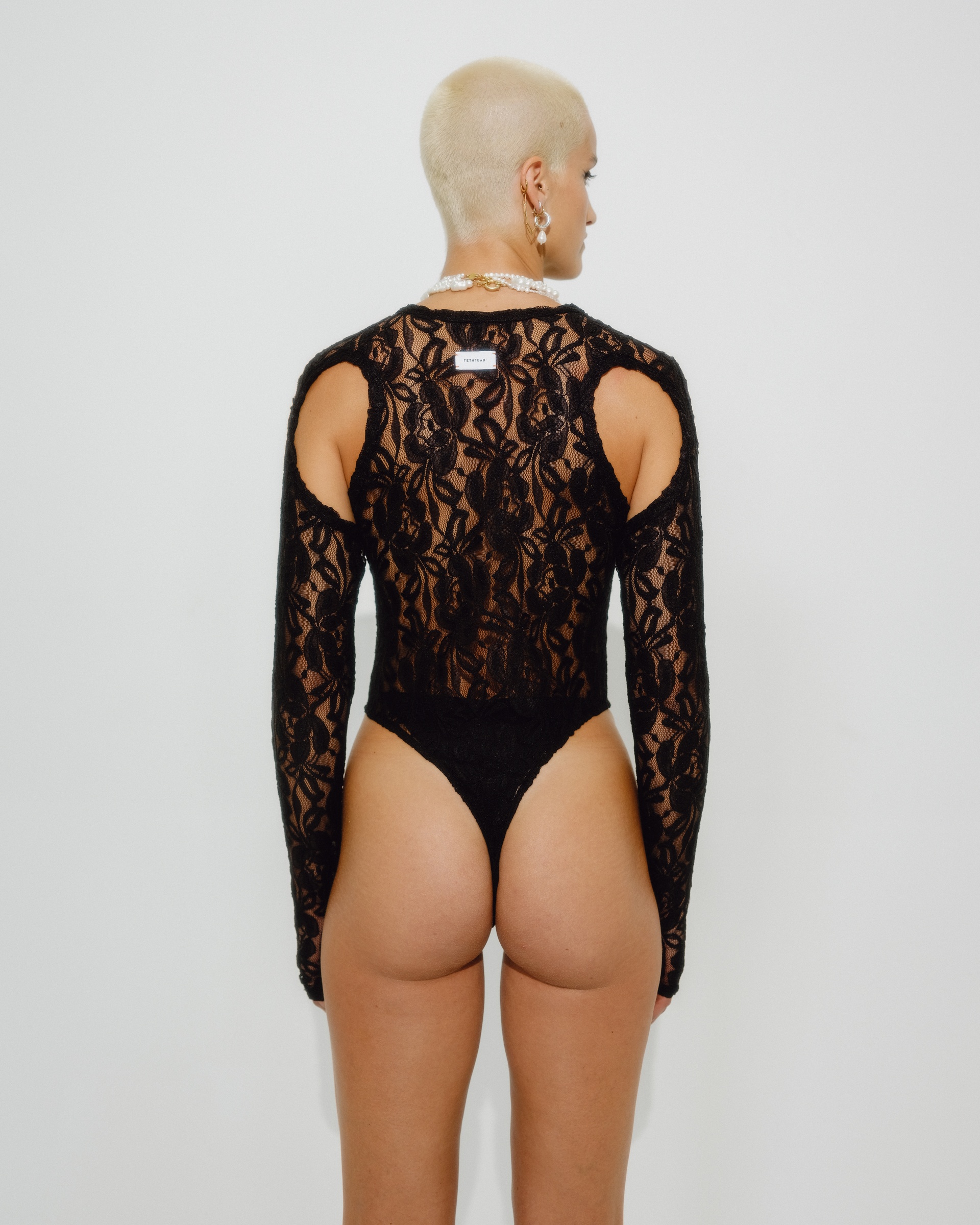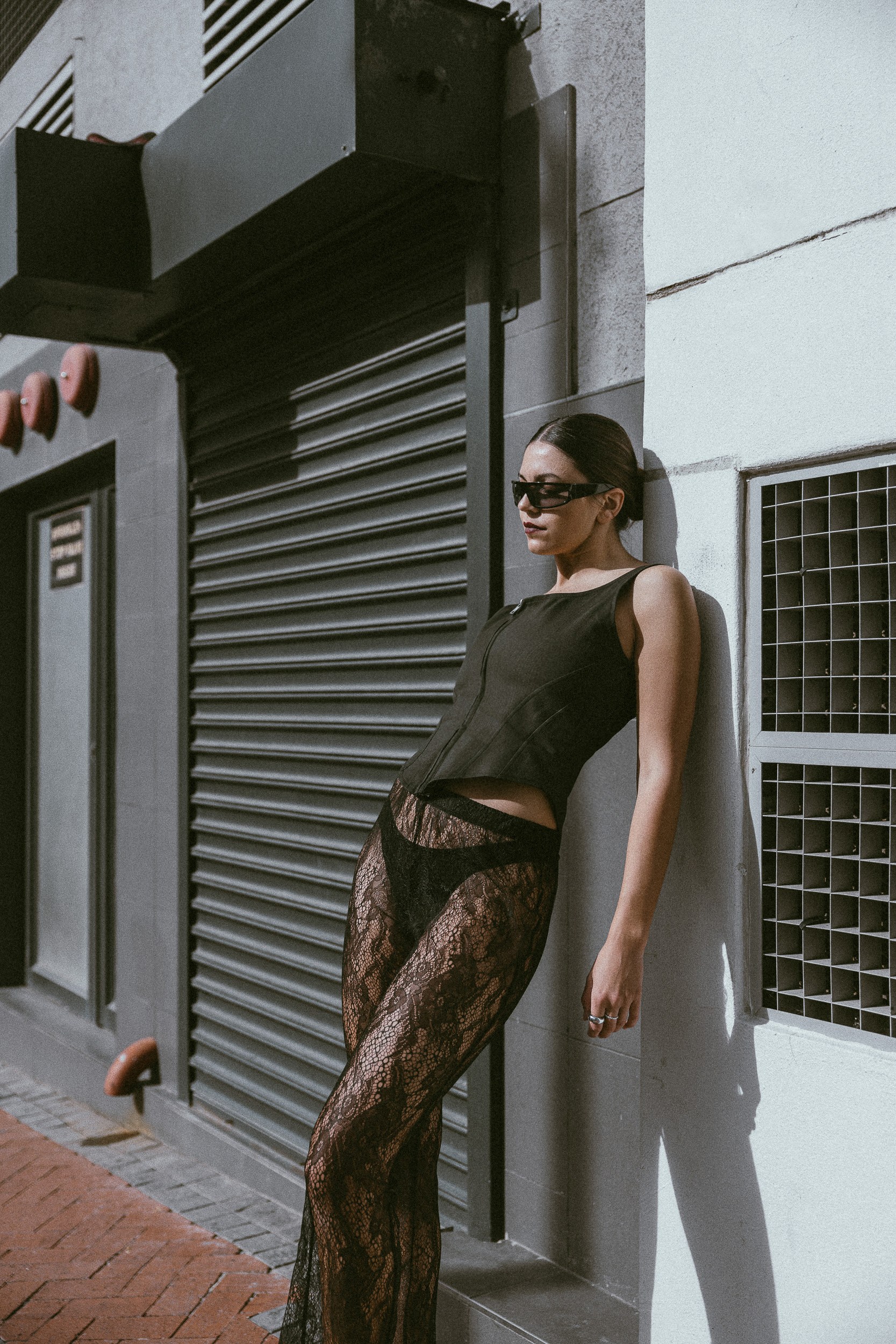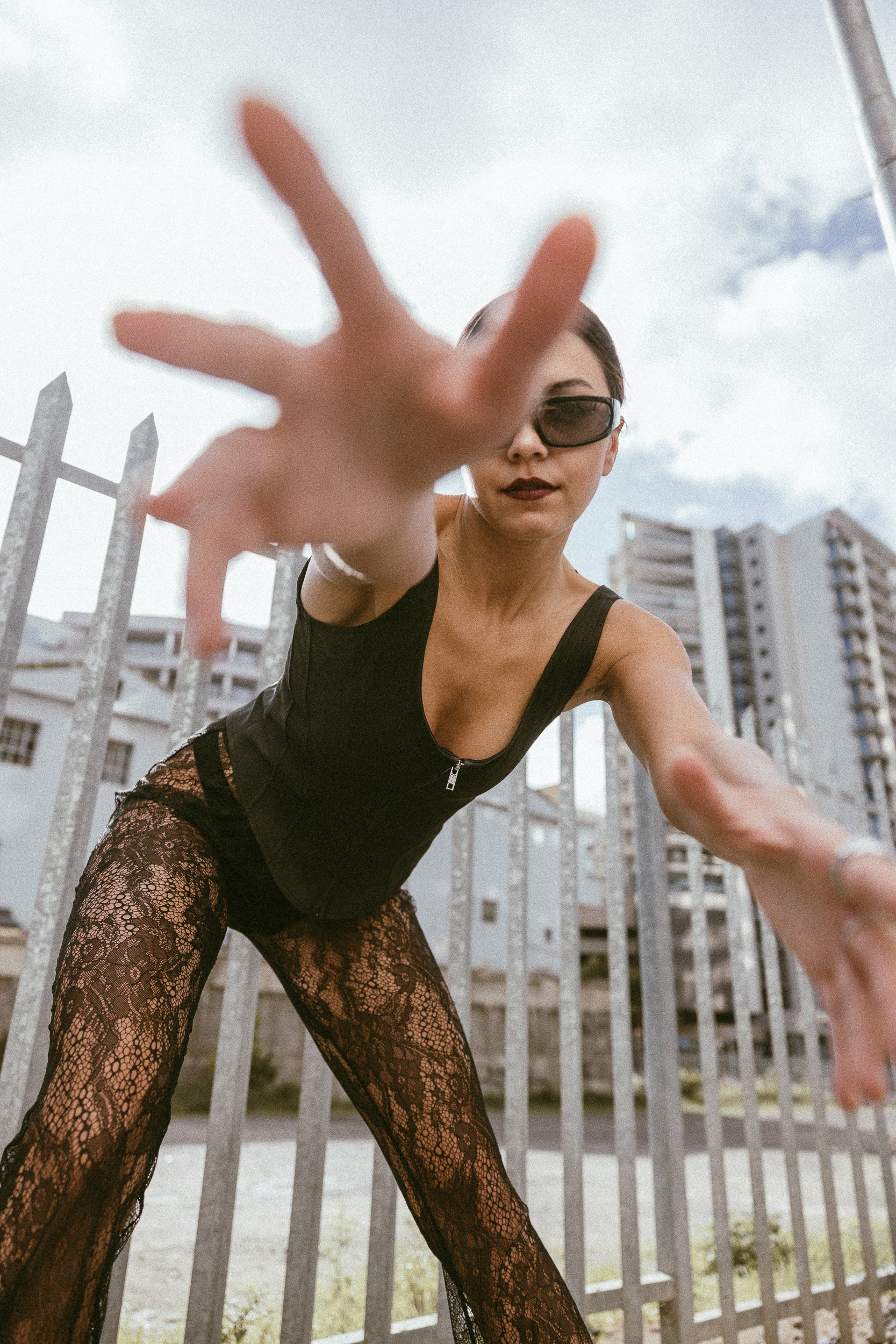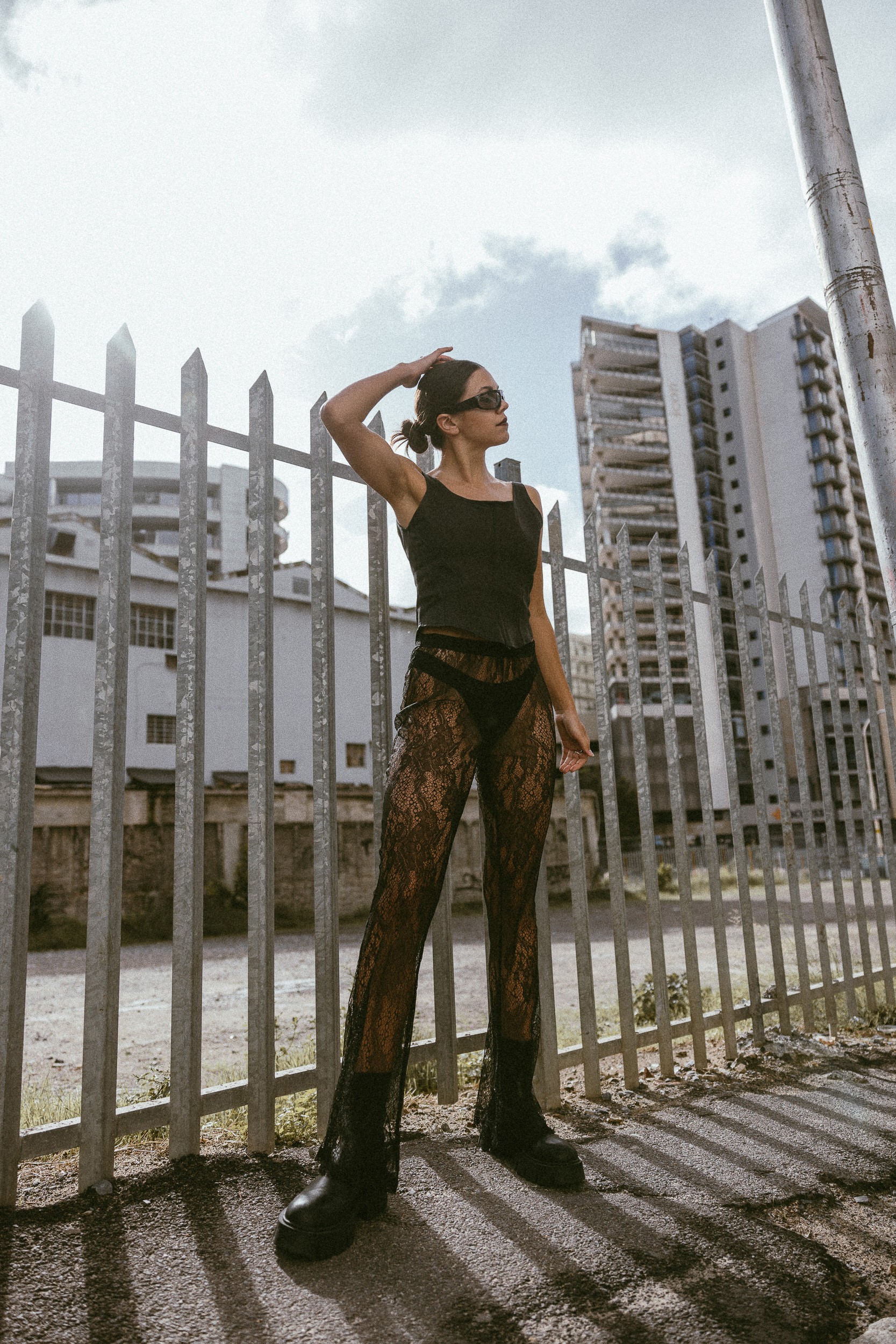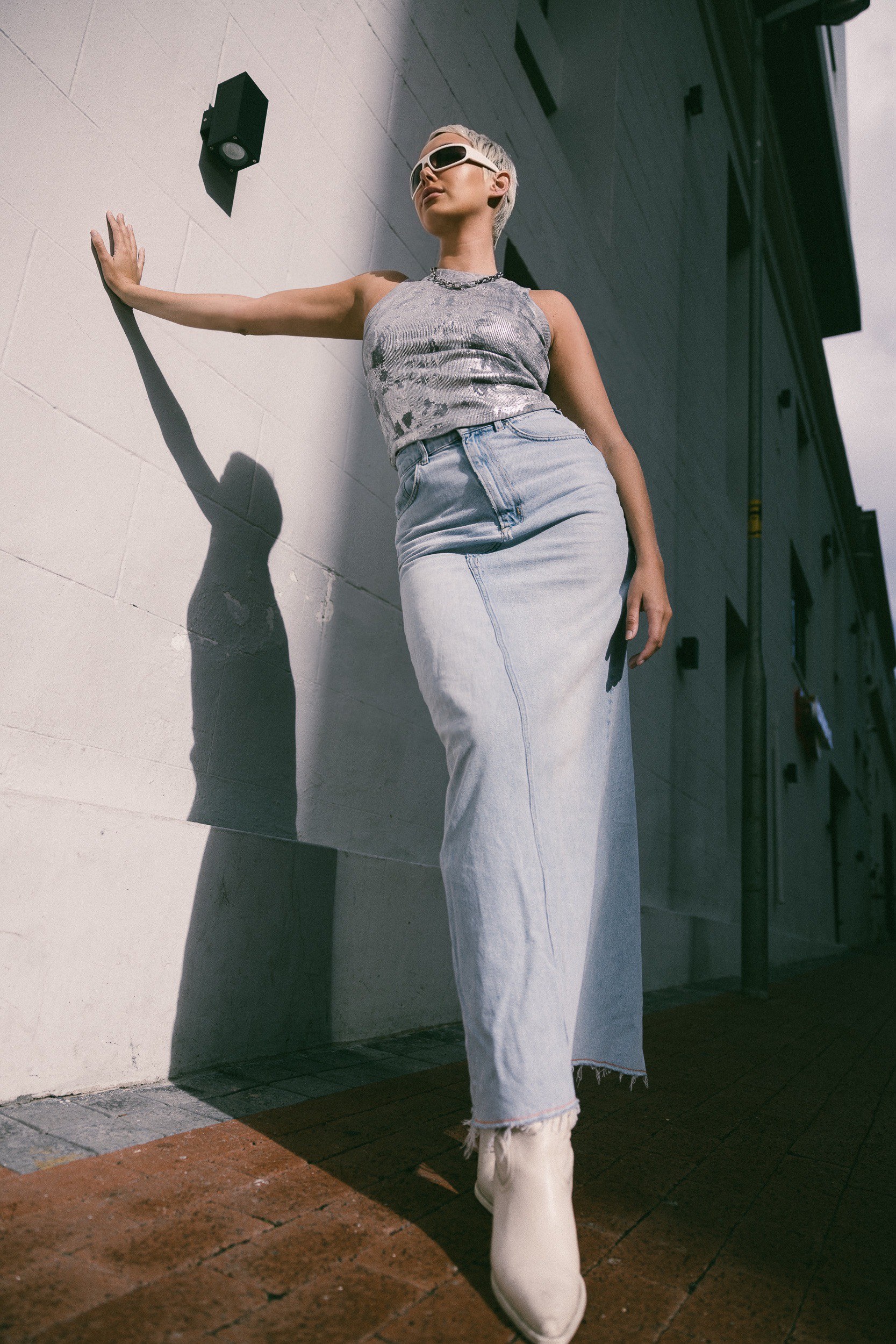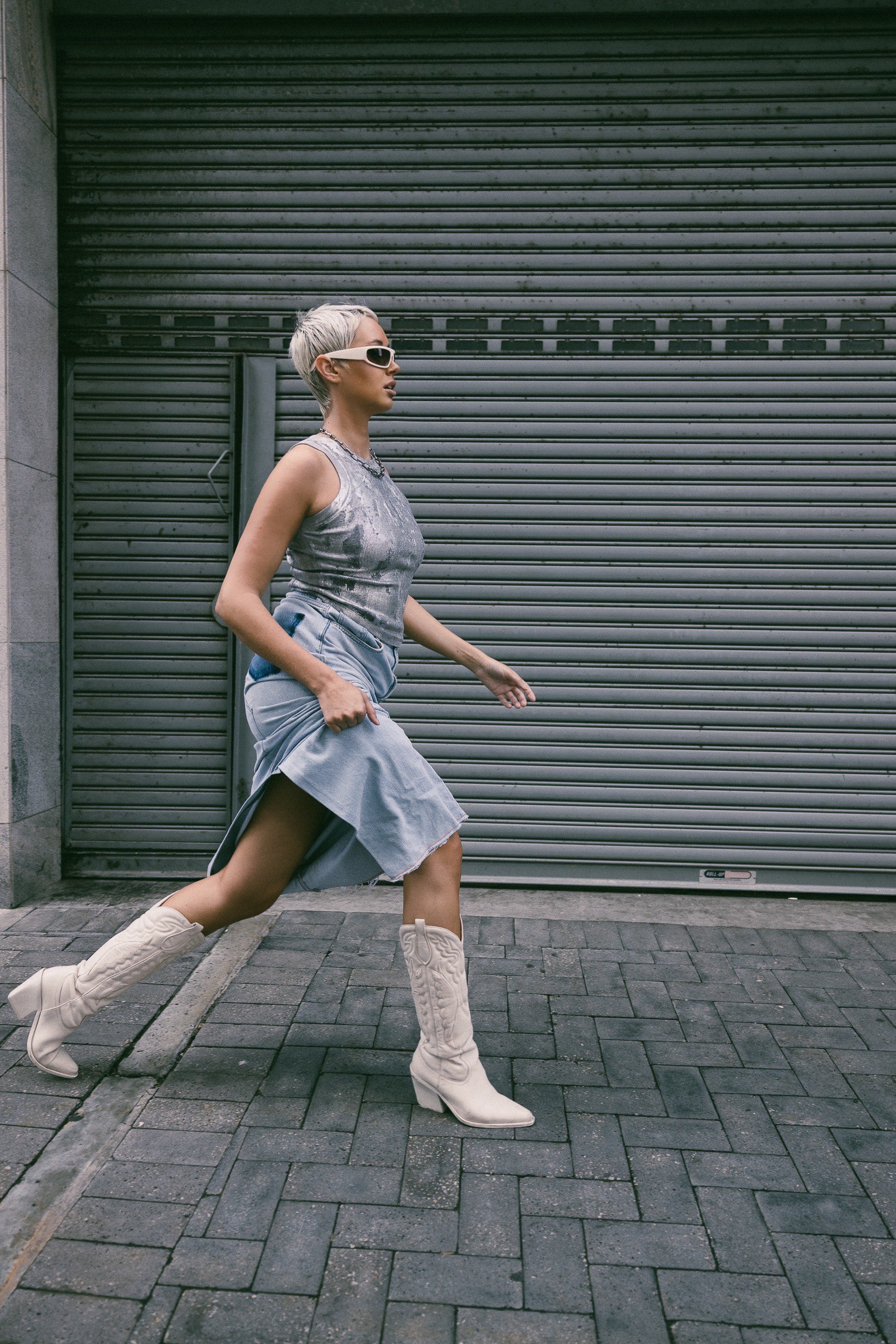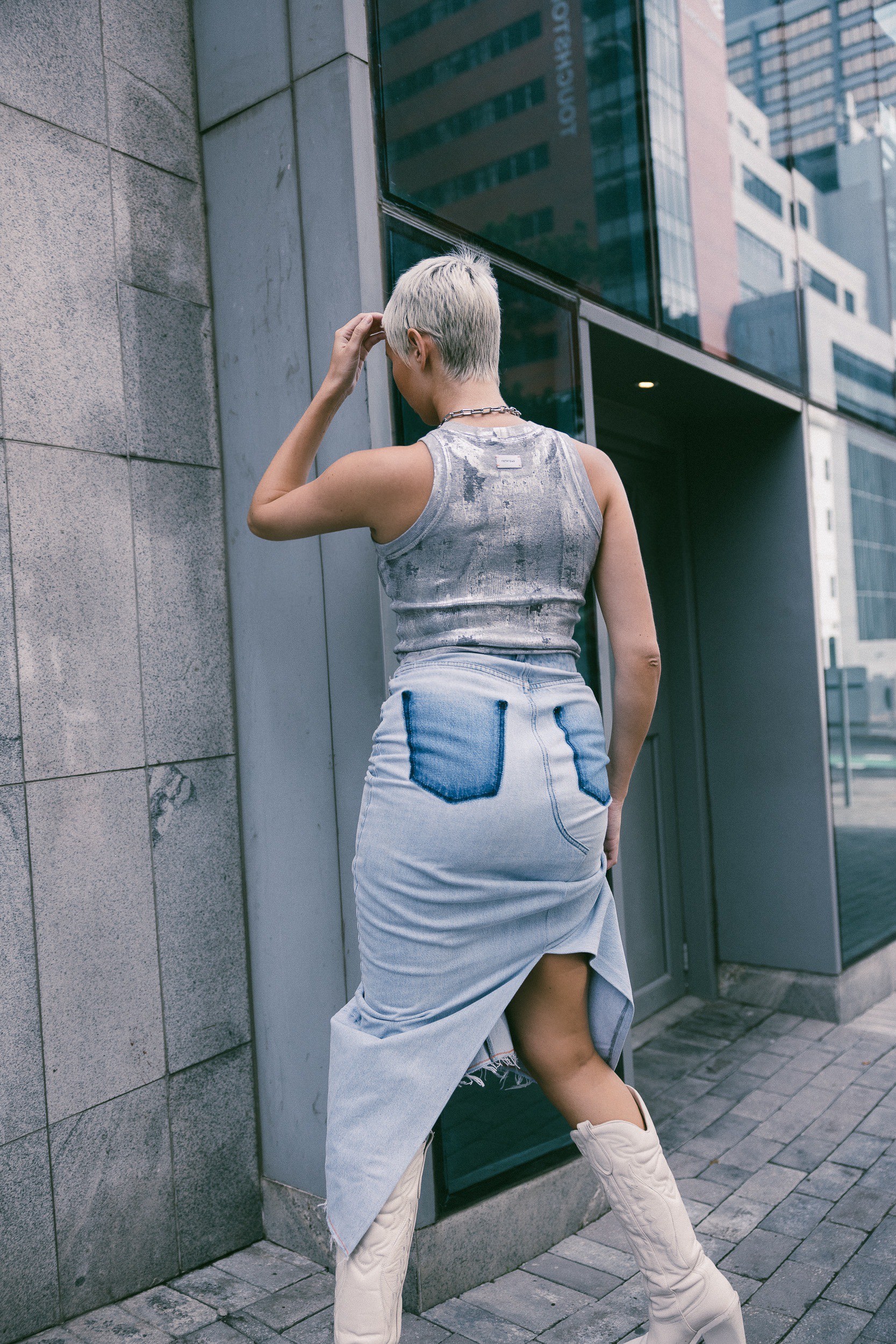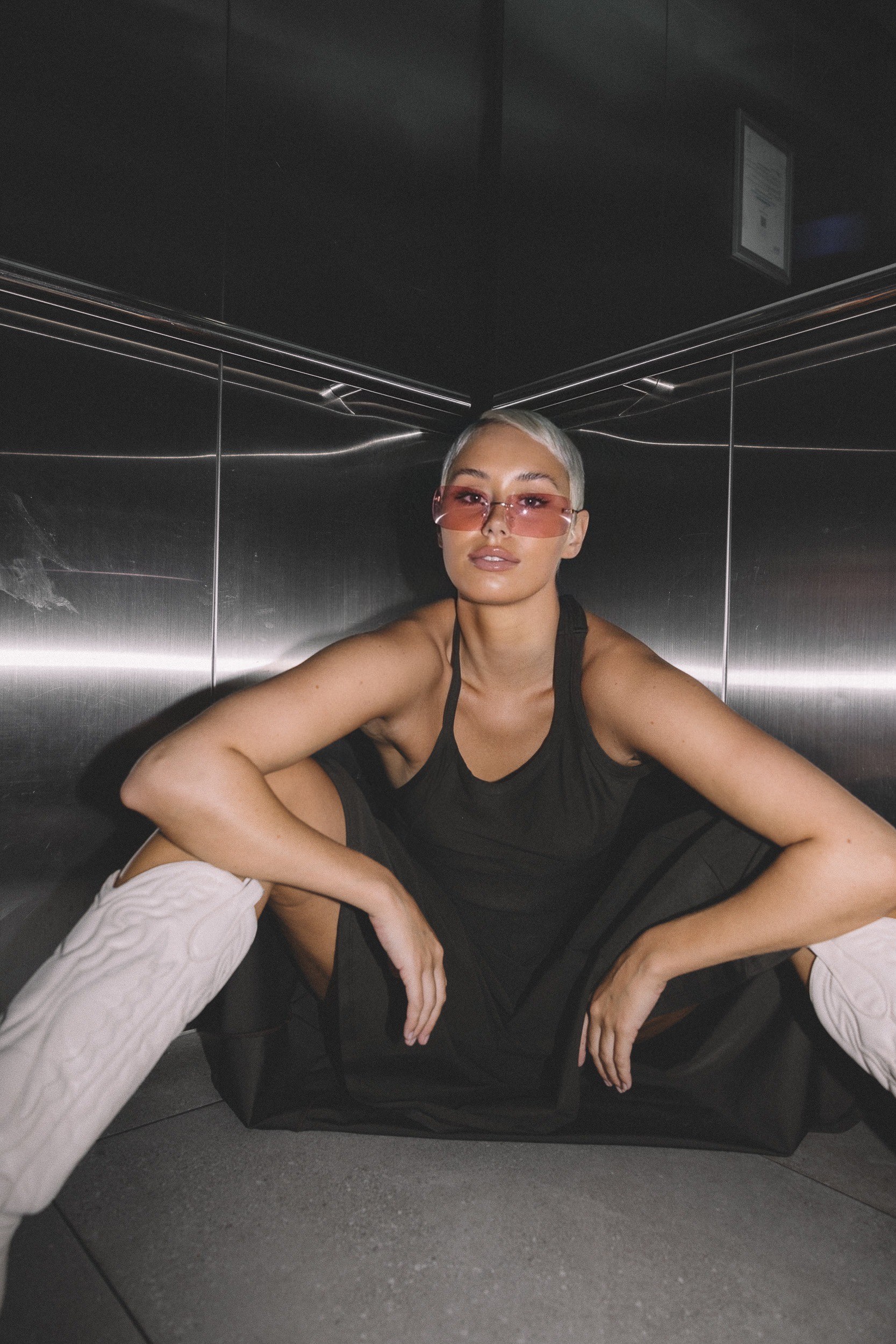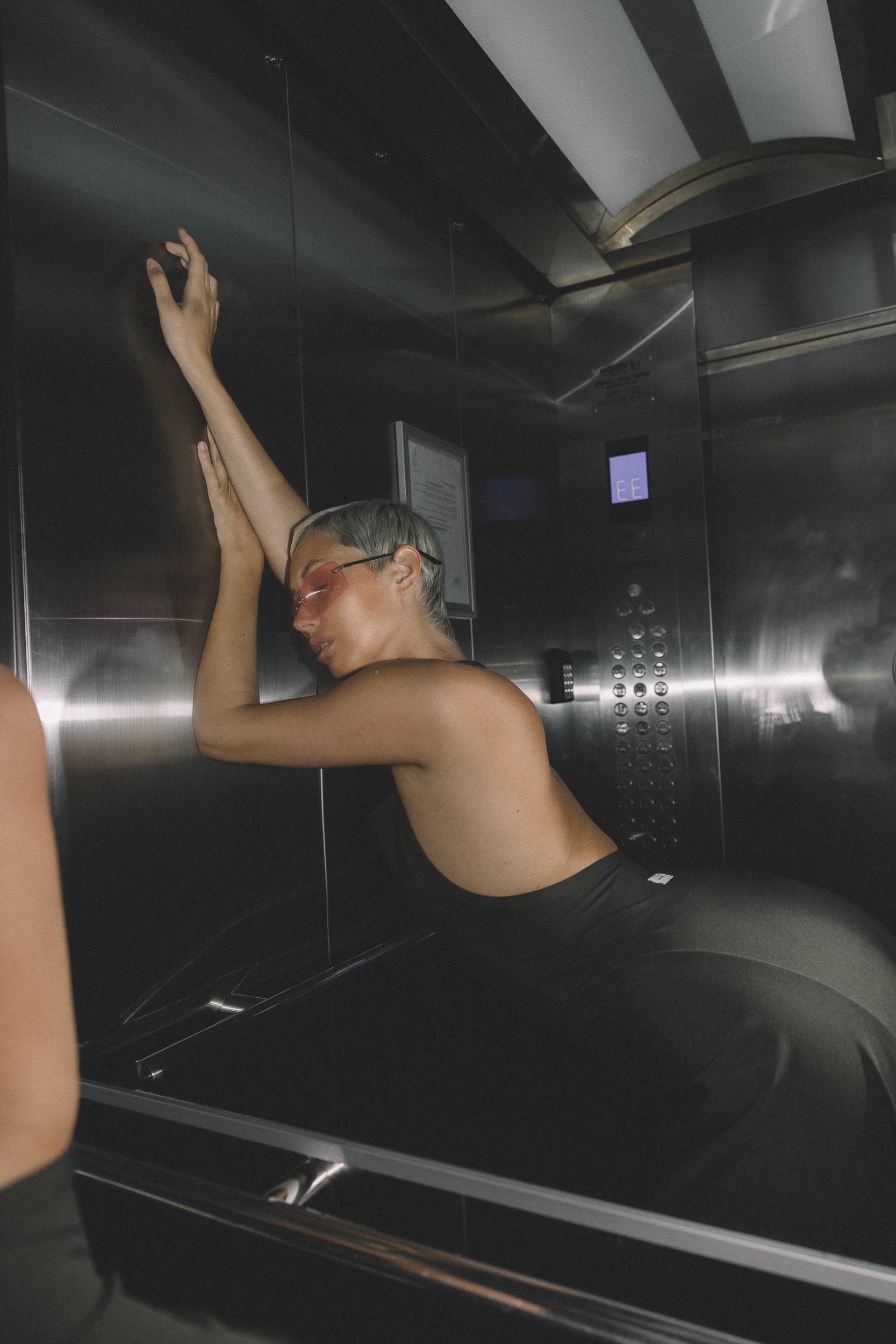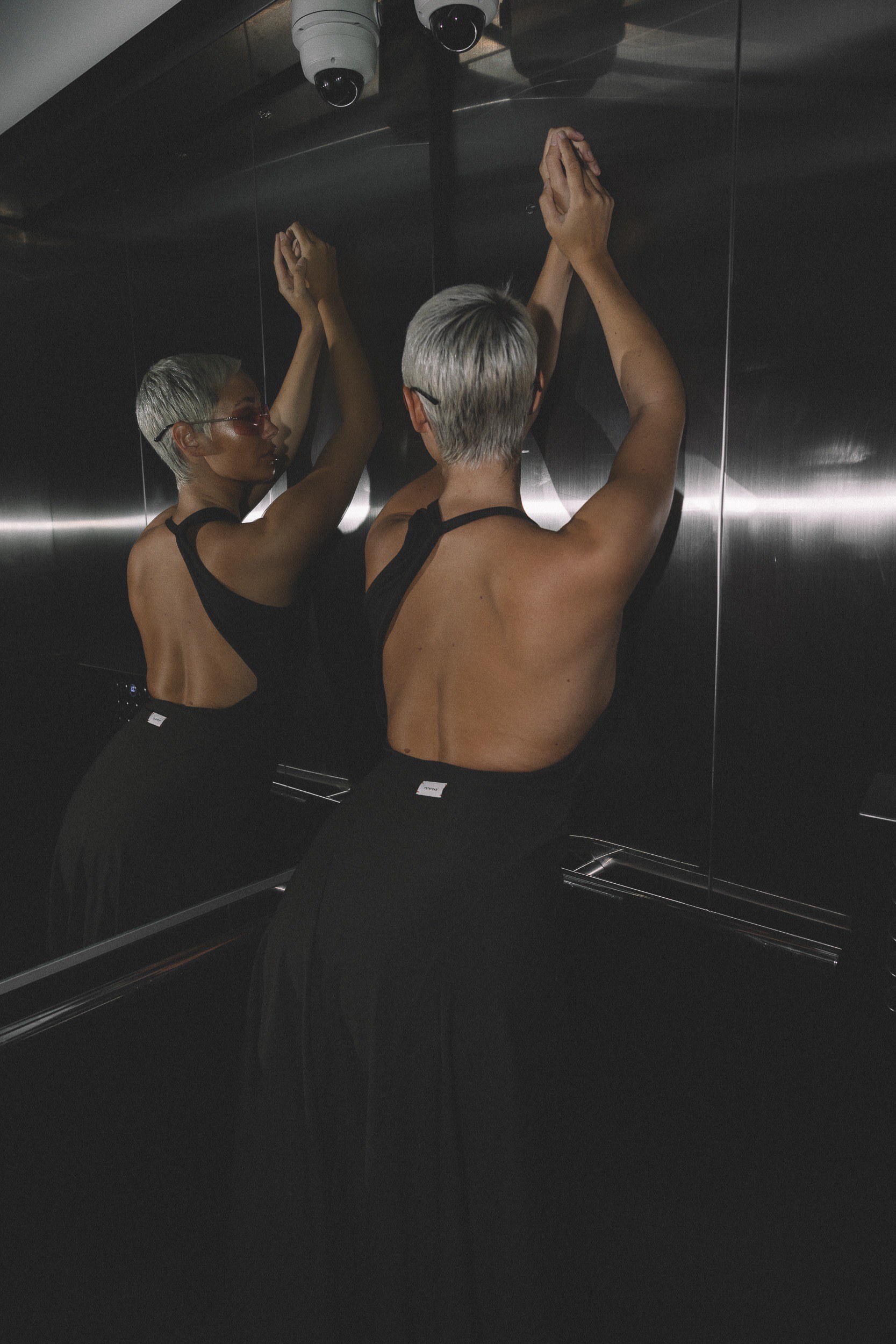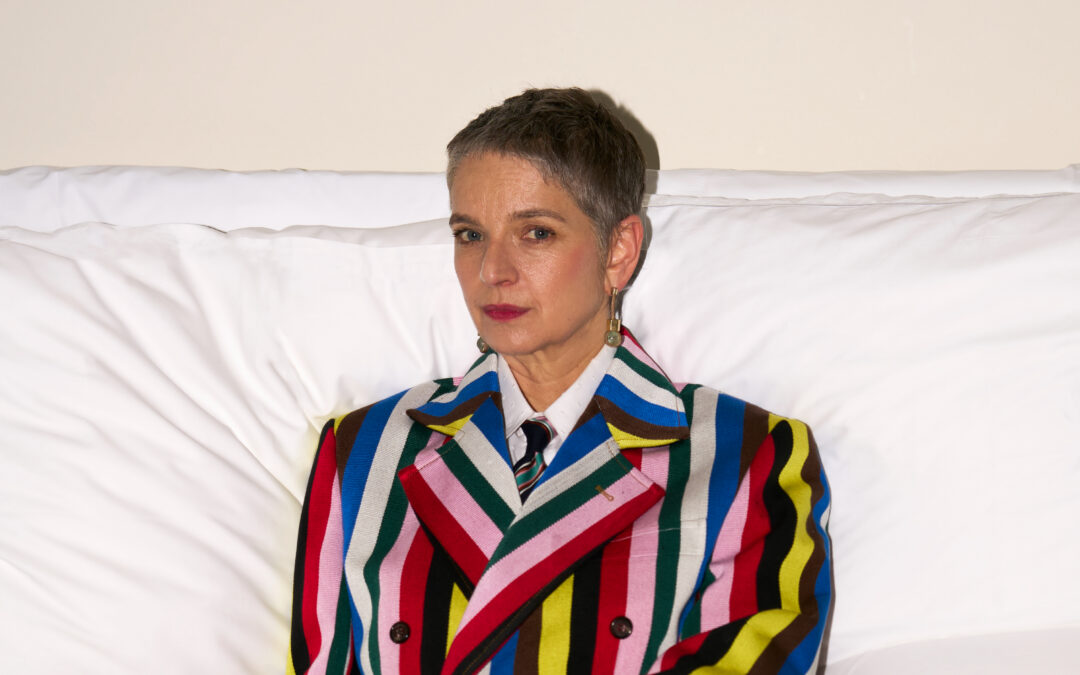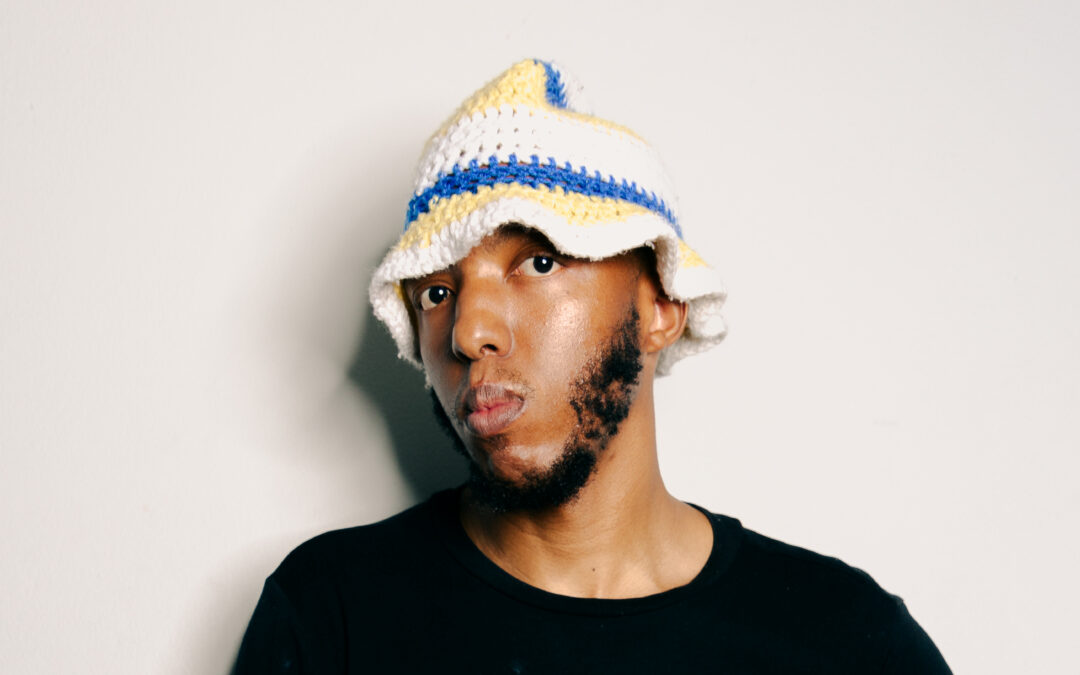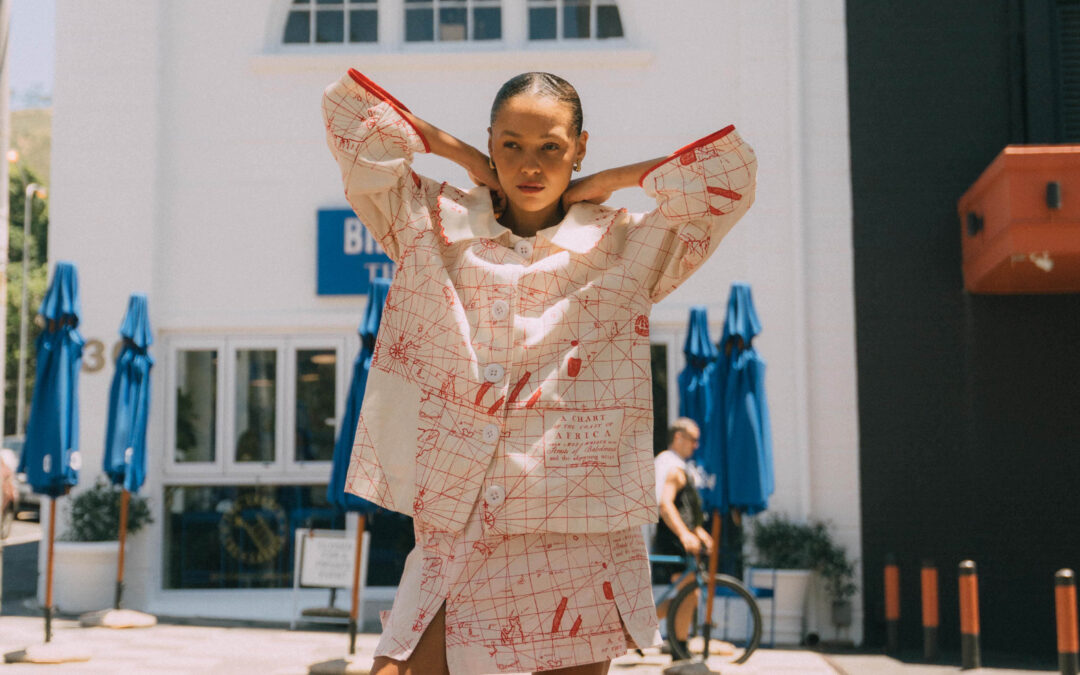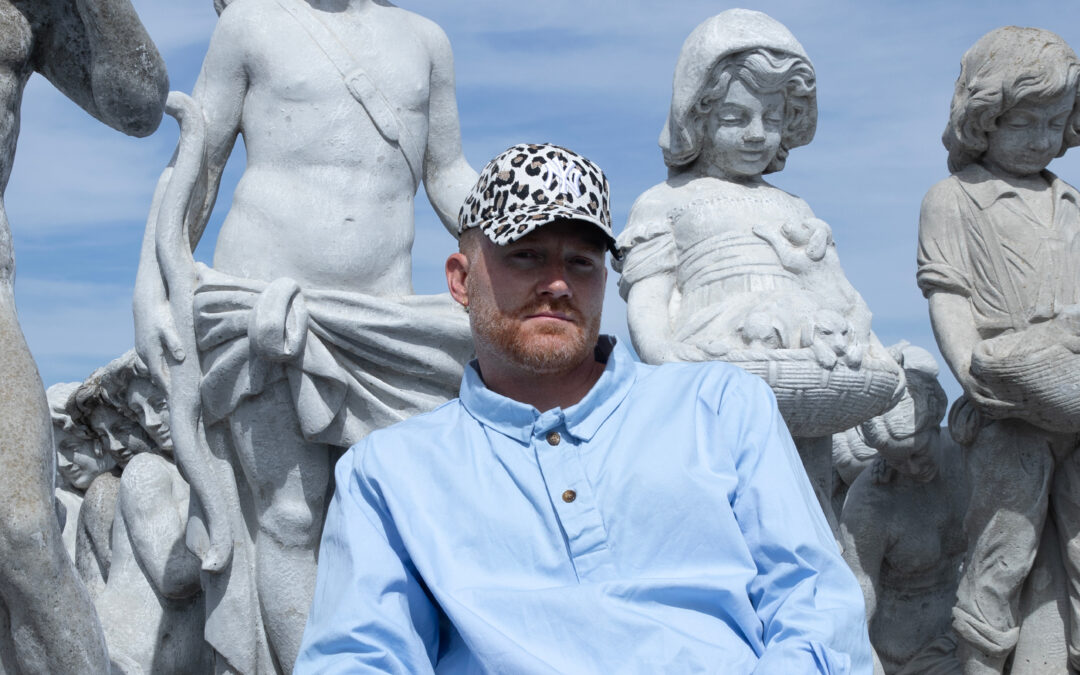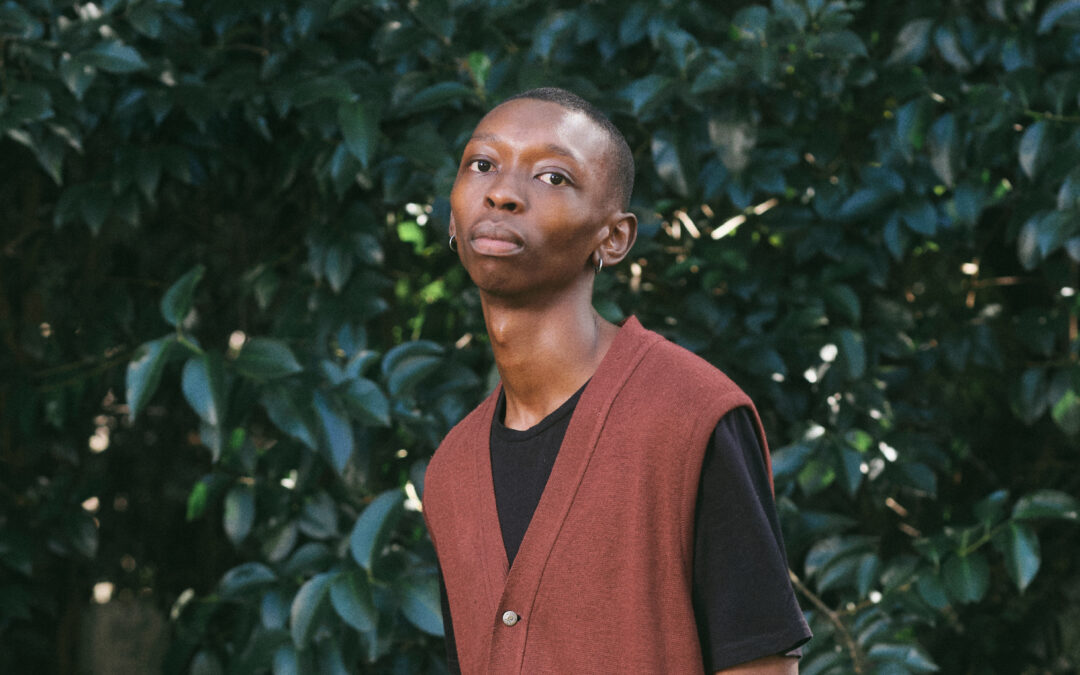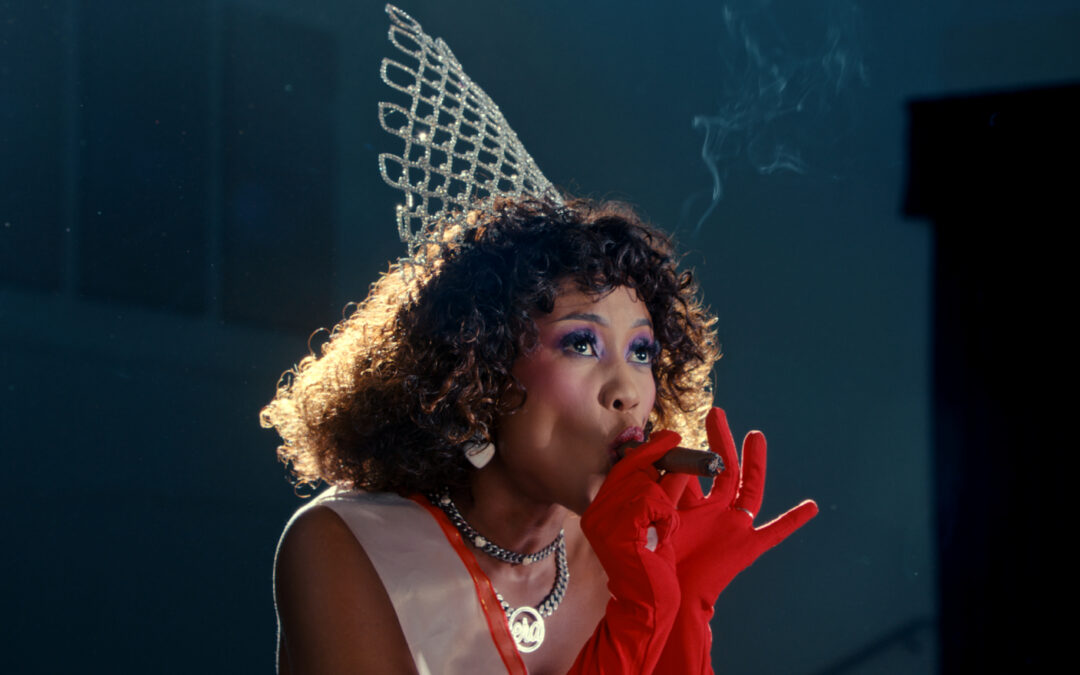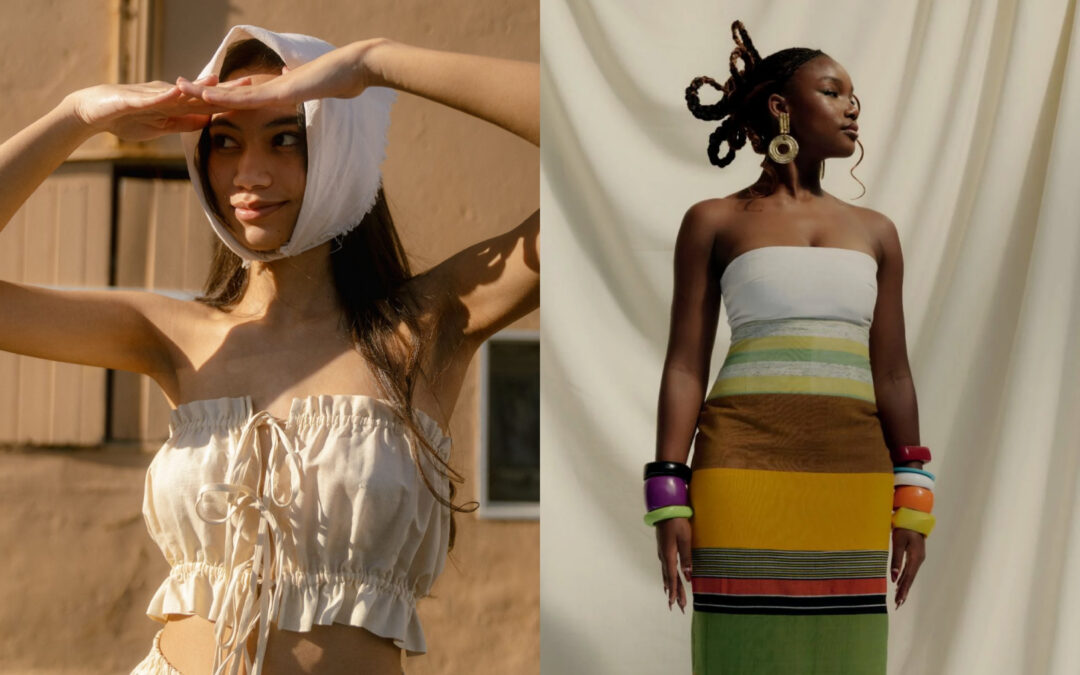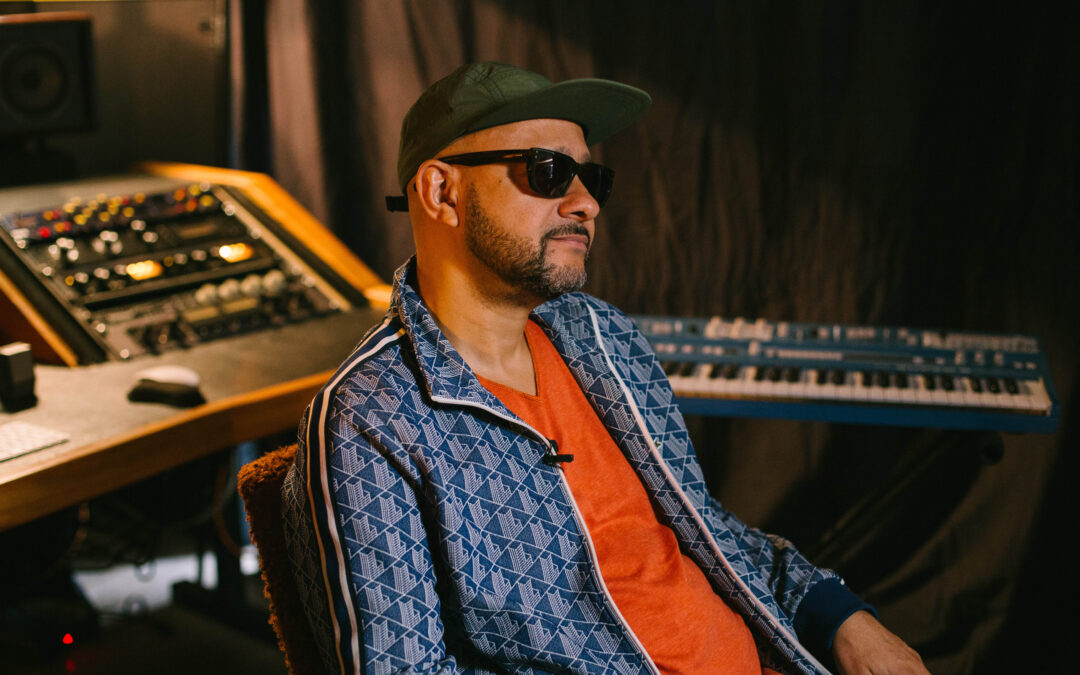Alexa Schempers was always meant to be in fashion. Design as a pathway into the industry is usually set on a course laid out by traditional education models of : moodboard, illustration, pattern-making and garment construction, so on and so forth. Usually, it attracts a particular person, with a particular kind of creative hunger; and while Alexa certainly has this ‘hunger’, it would be business and commerce that would be her segue in fashion. This, I believe, lends to the demonstrable success of Alexa’s brand Rethread; a cult-favourite label that has taken South Africa by storm, and then some. It’s not just the recent moment of seeing Rethread being adored by Julia Fox f or their 38.5k followers on TikTok – those are, in fact, by-products of the deep dedication Alexa has built her brand from, comprising of a three-part design category structure that enables sustainability to be, in every way possible, the beating heart of the Rethread vision. This is not neutral-tone, flaxseed sustainability – no – this is sustainability as sexy, sustainability as spell-binding & as earnest as it gets. I argue that Alexa is part of a wave of young designers and entrepreneurs around the world to showcase the power of building a small-scale fashion brand, from the ground up, with an uncompromising commitment to doing things differently.
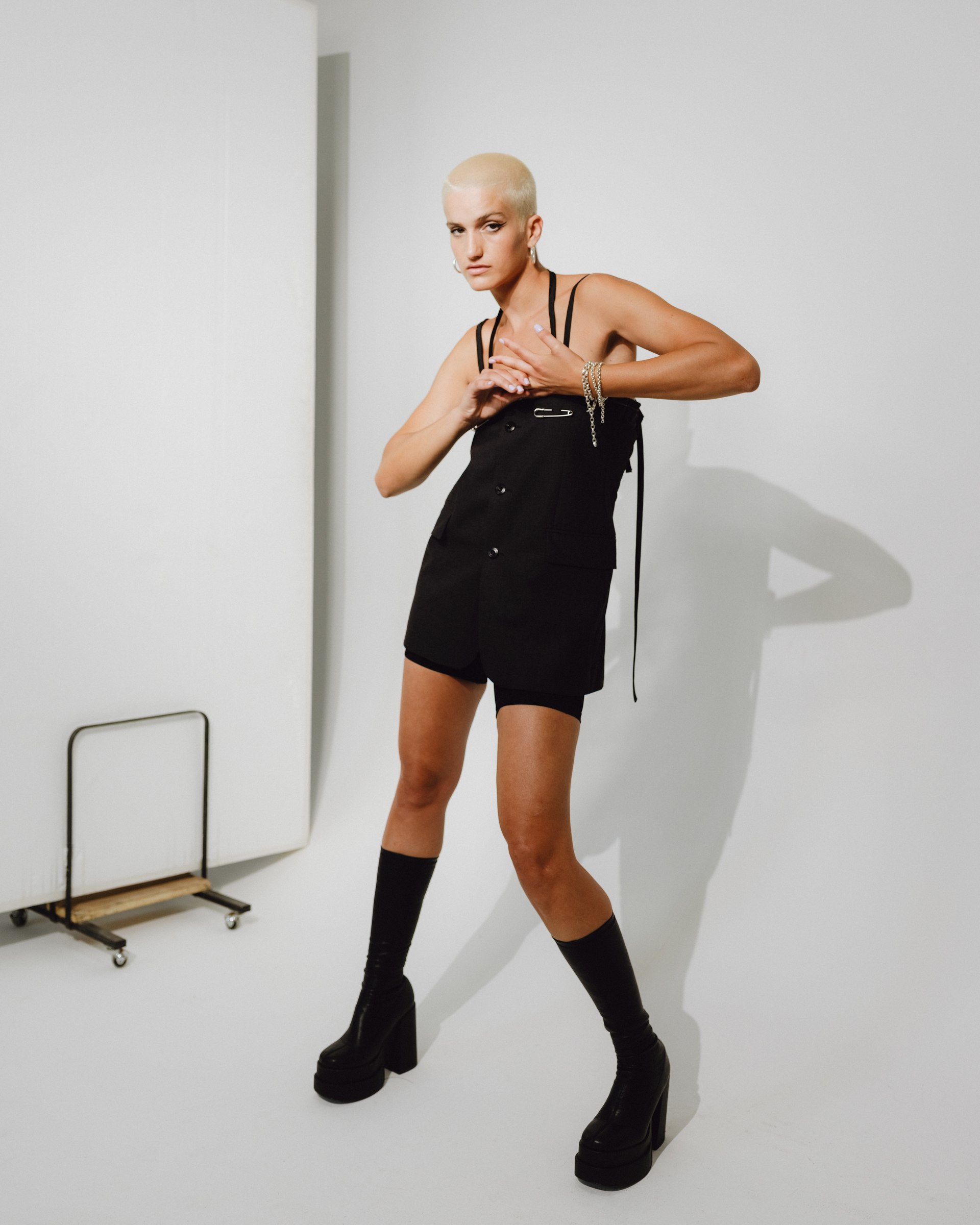
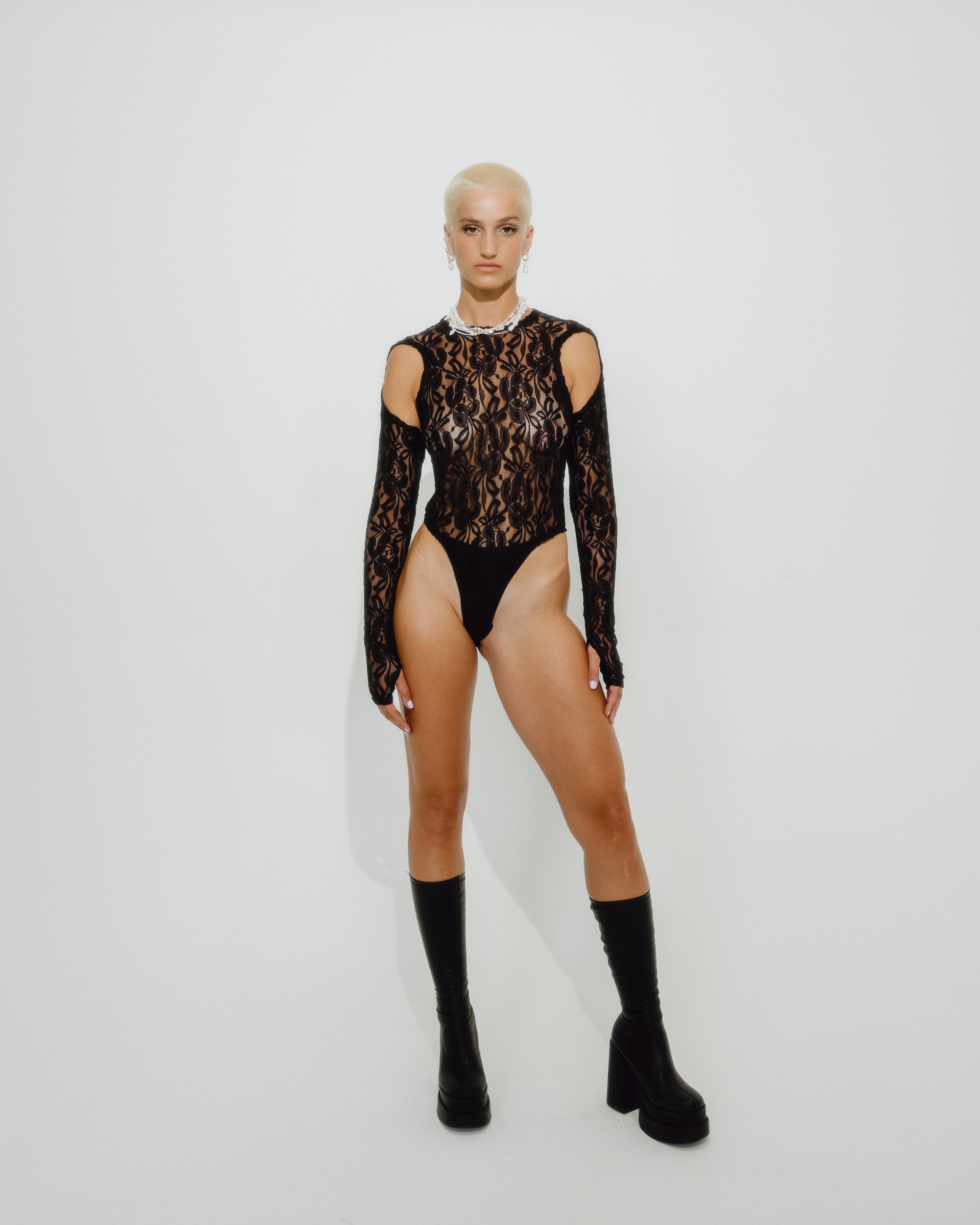
Having grown up with her expressly chic mother in the tranquil town of Knysna – it was her joy to travel with her on shopping trips down to Cape Town, to be immersed in the city with shops and style abound. When it was time for Alexa to study, however – she pursued a business degree with a focus on marketing. In our conversation, she expresses how she knew in her heart that fashion was her true calling; so when she made her way to the Netherlands, embarking on a Masters in ‘Fashion Enterprise Creation’ at the Amsterdam Fashion Institute. Reflecting, Alexa says, “It was a two year program, and the whole idea of the course was to plan and test a sustainable fashion business under the mentorship of the lectures, so it was a really amazing space to be in. The Netherlands is quite ahead of the curve, and they are very focused on sustainability and recycling – not just in the fashion and textiles industries. I had access to examples of sustainability and circularity not just as a theory, but also directly with people with working examples as career paths of functioning businesses. We broke down every aspect of a fashion business, and applied sustainability to each of those – how to include services and enhance a business model with as much in one’s toolbox.” For their final project, the students had to test, produce and market a fashion brand in partnership with students from the London College of Fashion; and the vision of upcycling became crystal-clear, as Aelxa explains, “Rethread was born in that incubator. Instinctively, I was drawn to the idea of using waste as resource – as someone who loves to shop, and loves fashion and experimenting with style – ‘re-fashion’, such as upcycling or resale, was the strongest forms of circularity that I wanted to test, as both an entrepreneur and a consumer.
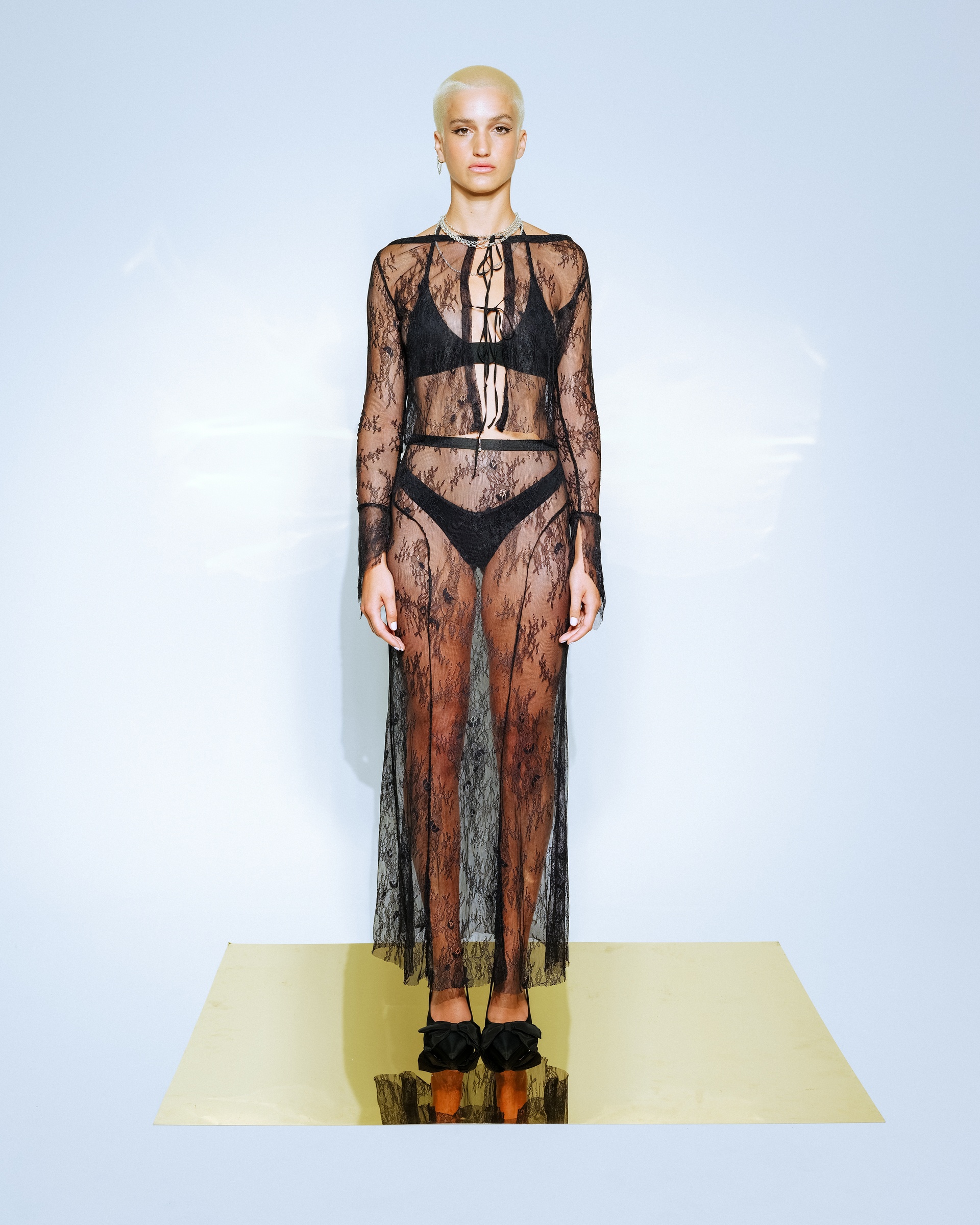
Fast forward a few years (and a whole pandemic), and Rethread is a fully-fledged and active part of South Africa’s scene. I think those iconic suit sets will forever be imprinted in the minds of us fashion girlies – and the earliest indication of Rethread’s commitment to doing sustainability differently, like the ingenious restructuring of deadstock men’s blazers, with slashed hemlines and the signature Rethread burnt orange stitching. For Alexa, circularity has to be enacted across everything they do, and it’s for this reason that Rethread offers three ways of purchasing: a three-part design category of an upcycled collection, sustainably-made and pre-loved. This ensures that her Rethread community can find something across the whole business, while also showcasing the varying ways sustainability as a model is possible in fashion. On the challenges, Alexa says, “I think because we have three different categories – upcycling, ready-to-wear and vintage – it’s kind of like running three, micro-systems under one business. As a small business, figuring one thing out is difficult enough, so the variety is quite challenging. Zooming into each process offers its whole host of challenges, but I think upcycling is perhaps the most unique frontier to face in terms of production. We use vintage garments, taking them apart and re-designing them, and being able to offer this as a product hinges entirely on the availability of supply. There are not many people willing to work in that method because it’s non-traditional, and you’re required to almost think backwards. Then, being able to scale upcycled concepts and designs so that we can offer varying sizes, and not just make once off pieces.”
Alexa’s use of TikTok is something to behold, with many viral videos – from explaining why a price-tag of sustainable fashion differs from fast-fashion prices, or where she sources her vintage pieces. Then, there was Julia Fox expressing love for the brand – leading to Alexa reaching out and sending some custom pieces to her. With TikTok, there has been an increase in international traction and interest; and while customer conversion is not as simple as ‘someone likes a video, and then makes a purchase’, social media has offered Rethread a way to be seen in the world. This is thanks to Alexa’s personal presence – and the knowing by her community and customers – that Rethread is born straight from her heart, to theirs, “I want Rethread to be relatable and personal, so I am very front-facing in the way that I share who I am, what we do and the story behind our garments. I didn’t want to just have a brand out in the world without any context behind it, especially with something like circularity or sustainability which is a relatively new way of thinking in the fashion industry. I also am very open about what would be called ‘trade secrets’ and that there is a culture of secrecy around; like, I want people to know that this is what you can do as a consumer or starting a brand. We need as many people as possible to be looking at waste as a resource, or tackling these issues both socially and environmentally; as cool and stylish as upcycling can be, it is also a really important thing that shouldn’t be gatekept. We are the one-stop sustainability shop for the fashion it-girl, and we want to lean more into this as our concept.”
This year is has seen some challenges, and with her imminent move to Cape Town from Knysna ahead, Alexa ends of by explaining the vision ahead – one that we remain in awe to witness, “I’m in a place where I have to make some difficult decisions, you know, cutting what’s not working and focusing on what does work. The evolution of the brand has been a continuation of learning from its earliest start as part of my Masters degree, and I’ve been learning along the way, this whole time. This next growth phase is about elevating our up-cycled designs, and continuing to define what makes Rethread, its own. I always refer to Rethread as something that is made of a toolbox, and the next thing I want to develop is our branding, and textile design, so that we can create more signature elements that make us unique. I think it’s really exciting to be in fashion, because while we are presented with huge crises, it is also bringing about so much innovation, so our design-led circularity has much more to evolve into.”
Written by: Holly Beaton

